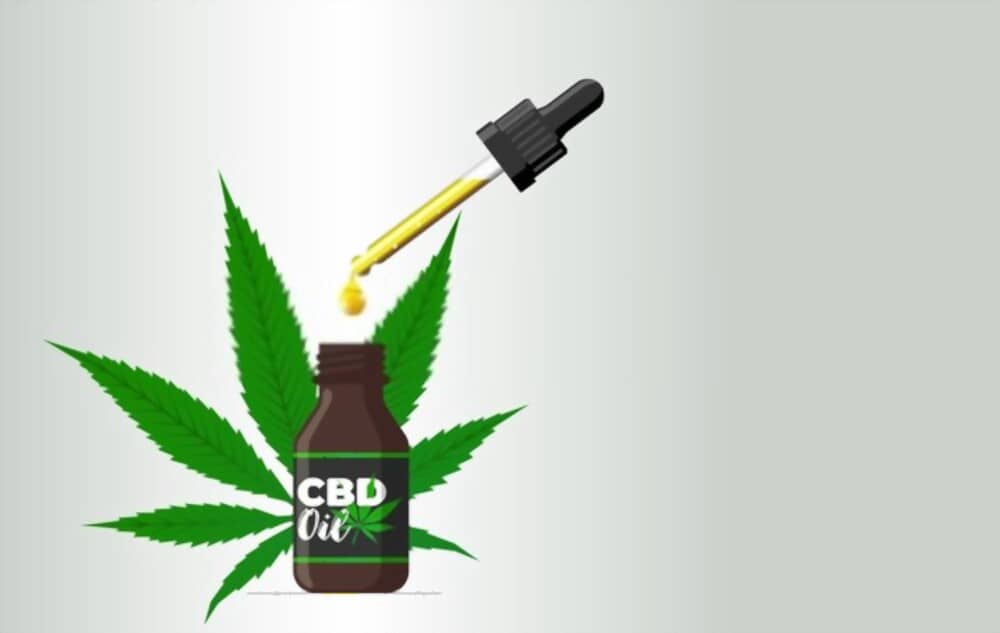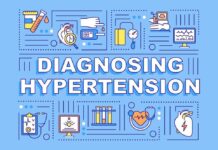The therapeutic potential of cannabidiol (CBD) has been extolled for decades, and recently there has been a renewed interest in the chemistry and biology of this cannabinoid.
Since its discovery in the 1940s, the cannabinoid receptor system has become one of the most widely studied and dynamic areas of research in biology. It's no secret that human beings respond to cannabis as a species-specific toxin.
In other words, we react to it because we aren't used to it as a part of our normal routine. However, the response is not always negative; in fact, some people report intoxicating effects that are extremely pleasant.
We have known for centuries about the psychoactive properties of cannabis. But only recently did scientists discover why humans have cannabinoid receptors in their brains and why they react so strongly to compounds found in cannabis.
Let's take a look at what we know about CBD, cannabinoids, and what they mean for medicine today and tomorrow.
What is CBD?
CBD is short for cannabidiol, a compound found in cannabis. It is one of over 100 known cannabinoids. These chemicals bind to receptors in the body and brain to trigger responses from the endocannabinoid system, which is responsible for regulating many physiological processes in the human body.
The cannabis plant contains over 400 different chemical compounds, and scientists have classified them as belonging to one of three different “families”: cannabinoids, terpenes, or flavonoids.
CBD belongs to the cannabinoid family; it is a phytocannabinoid (meaning it comes from plants).
It is not psychoactive like other cannabinoids, such as tetrahydrocannabinol (THC), but it may interact with THC and other compounds found in cannabis and produce beneficial effects when consumed or applied topically.
How Does CBD Work?
Scientists have discovered that our bodies contain a natural endocannabinoid system (ECS). The ECS regulates many different physiological functions, including mood, sleep cycles, pain perception, appetite regulation, and more.
However, scientists also believe that they can exploit this system for therapeutic purposes.
For example, a study published in 2016 by researchers at Massachusetts General Hospital reports that patients with post-traumatic stress disorder who used CBD oil could reduce their symptoms by nearly half after just four weeks of treatment! That's impressive! But how can one compound do so much? Let's take a closer look.
The Endocannabinoid System (ECS)
The endocannabinoid system is a series of receptors spread throughout the body, responsible for regulating many different physiological functions.
Among these functions are regulating appetite and metabolism, modulation of pain, and maintaining homeostasis. The ECS also plays a role in regulating mood and protecting against oxidative stress.
CBD seems to have the ability to influence all of these functions through its interaction with the endocannabinoid system.
Your body's entire cannabinoid system is definitely puzzling, especially since we seem to be so influenced by cannabinoids in cannabis plants.
It turns out that our endocannabinoids are very similar to the phytocannabinoids in hemp plants. The prefix endo- refers to ‘inside,' and these cannabinoids are produced internally in our bodies.
This endocannabinoid system is stimulated by the cannabinoids found in cannabis. When used for medical purposes, cannabis is thought to be helpful for its ability to activate the ECS (endocannabinoid system).
As these external cannabinoids resemble compounds that occur naturally in the body, they can interact with the ECS receptors and produce a response.
This is why so many people have found cannabis to be effective for treating various medical conditions.
Even though we still don't know all of the mechanisms by which CBD acts on our body, some theories have been put forth on how it produces its therapeutic effects.
Some have suggested that it increases endocannabinoid levels (by increasing the number of available receptors), while others believe it helps regulate neurotransmitter activity within our brains and central nervous systems.
The truth is likely more complex than either one of these theories suggests–and maybe even something entirely different than anything we've discussed so far!
The Cannabinoid Receptors
Our discussion of CBD's effects on the body has focused on its interaction with different receptors within the endocannabinoid system, but which receptors are these?
It turns out that CBD has the ability to modulate many different biological functions in the body through its interactions with the following receptors: CB1, CB2, TRPV1, 5-HT1A, ADR, and FAAH.
CB1 receptors
CB1 receptors are abundant throughout the body but are especially concentrated in the central nervous system.
In fact, CB1 receptors are the most widely distributed receptor in the human genome.
They are most abundant in the hippocampus and amygdala, which are both involved in memory and are sites of frequent cannabinoid receptor activation.
Within the central nervous system, CB1 receptors are thought to play a role in many important functions, such as regulating mood, appetite, and sleep.
In the periphery — that is, outside of the central nervous system — CB1 receptors are involved in regulating blood pressure and pain perception.
CB2 receptors
CB2 receptors are found primarily on cells of the immune system. They are most abundant in the spleen and tonsils but also in peripheral tissues such as the liver, skeletal muscle, and fat cells.
CB2 receptors are thought to be involved in regulating inflammation and various body processes related to regulating and defending against pathogens.
When CBD interacts with CB2 receptors, it inhibits the release of pro-inflammatory cytokines.
These molecules are released by immune cells, cause inflammation, and are involved in the progression of many diseases, including neurodegenerative diseases like Alzheimer's and Parkinson's.
By reducing inflammation, CBD may help prevent or slow down the progression of these diseases.
ADR, 5-HT1A, and FAAH
ADR and 5-HT1A are both serotonin receptors, while FAAH is an enzyme that degrades the endocannabinoid anandamide.
These different receptors and enzymes work together to produce a specific biological response in the body, which can be targeted to produce the desired effect through selective serotonin receptor modulators (SSRMs).
For example, SSRMs that boost 5-HT1A activity in the prefrontal cortex has been demonstrated to improve mood, increase curiosity, and reduce anxiety.
In one study, SSRMs were shown to reduce the symptoms of obsessive-compulsive disorder (OCD) in patients with a combination of 5-HT1A and FAAH activity.
5-HT1A itself is widely distributed throughout the brain and has many functions. It is involved in the regulation of sleep and appetite and may also be involved in the regulation of mood and anxiety.
5-HT1A is often considered the “receptor of loveliness” due to its role in regulating serotonin, which has been widely studied for its role in mood.
In fact, some antidepressant medications are selective serotonin reuptake inhibitors (SSRIs) because they increase the amount of serotonin available in the synapses between neurons, which is mediated by 5-HT1A.
TRPV1
TRPV1 is a sensor that detects both heat and capsaicin (the active ingredient in chili peppers). When these substances fall below a certain threshold, the receptor sends an impulse to the spinal cord, which then sends a “fire” signal to the brain.
This is what causes the burning sensation felt when eating very spicy foods and touching something too hot.
The CBD interacts with TRPV1 receptors in a way that reduces the sensitivity of these receptors to heat and capsaicin. Because of this, CBD can reduce discomfort caused by things like chronic inflammation and neuropathic pain.
The fact that CBD reduces the sensitivity of TRPV1 receptors makes it useful for reducing the pain associated with inflammation. It also makes CBD useful for treating chronic pain, which is often characterized by hyperalgesia (exaggerated response to painful stimuli).
In addition to reducing inflammation-induced and injury-induced pain, topical CBD is also an effective treatment for chronic nerve pain (neuropathy).
Neuropathy is a condition characterized by abnormal sensations such as burning, tingling, stinging, etc., due to damage or dysfunction in peripheral nerves.
It's estimated that around 50% of people suffering from diabetes experience some form of neuropathy, making it one of the most common complications associated with this disease.
The Receptor Binding Process
So far, we've discussed how CBD has been shown to bind to both primary receptors, which are CB1 and CB2.
You may be asking yourself why this is important–after all, wouldn't binding to both receptors simply result in a larger number of effects? The answer is: no, it doesn't have that effect!
The effects of CBD are actually quite specific and are determined by which receptor it binds to.
When CBD binds with the CB1 receptor, it reduces some of the psychoactive effects typically associated with cannabis use (like feeling “high”).
This is because when CBD binds with this receptor, it reduces glutamate activity in our brains. Glutamate is an excitatory neurotransmitter that increases our neural activity and makes us more awake and alert.
CBD's ability to reduce glutamate activity can be beneficial for those suffering from anxiety disorders or schizophrenia by reducing the severity of their symptoms.
It can also help patients suffering from inflammation or pain by reducing their overall perception of pain and discomfort.
On the other hand, when CBD binds with the CB2 receptor, it has been shown to increase GABA production–the major inhibitory neurotransmitter that helps us relax and sleep soundly at night!
As you can see, there are many different ways that CBD can affect our bodies, depending on which receptors it interacts with within our endocannabinoid system.
The Benefits of CBD
Now that we understand the basics of how CBD interacts with our bodies, let's take a look at some of the major benefits that CBD is capable of producing.
Pain Relief
CBD has been found to be effective in treating and even preventing pain in many individuals. This is because it interacts with CB1 receptors, which are located throughout our bodies, particularly in areas of our nervous system associated with feelings of pain (known as nociceptors).
Since CBD can interact with these receptors and reduce the activity associated with them, it can help to prevent painful sensations before they actually occur.
Additionally, studies have shown that CBD can help reduce the amount of certain inflammatory compounds in the body.
These compounds are known to promote inflammation and pain within our bodies–the same compounds that cannabis was once thought to stimulate.
As you may now know, this belief has been debunked by recent research; however, it's still important to note that CBD can help reduce inflammation throughout your body.
Appetite Stimulation and Cancer Treatment
CBD has also proven useful for stimulating appetite and reducing nausea (especially common during chemotherapy treatments).
Studies have shown that people who suffer from these conditions tend to benefit from a higher concentration of cannabis extract than what is typically found in commercialized products like oils or capsules.
This is because compounds like THC can cause feelings of anxiety or paranoia when consumed at high doses; therefore, increasing the amount of THC won't necessarily drastically increase the effects.
This is why it's so important to gauge the effects of CBD by itself before consuming a product that contains both CBD and THC.
If you find that CBD works well on its own, you can then decide to add in small amounts of THC, if desired.
However, there are certain conditions where getting high concentrations of CBD with little to no THC is preferable–including cancer treatment or inflammatory disease.
Chronic Pain and Inflammation
CBD has been proven to have anti-inflammatory properties, which makes it a great alternative for those who suffer from chronic pain or inflammation.
After all, chronic pain and inflammation are two things that can be difficult to treat with medications because they often cause fatigue or drowsiness; however, as mentioned above, CBD has been shown to reduce inflammation without causing this type of side effect.
In fact, many people report that consuming CBD helps them feel more energetic–a feeling which is often lacking when suffering from chronic pain or inflammation (or both!).
Sleep Disorders
It's no secret that the cannabis plant has long been used as a natural sleep aid; however, we now understand that THC doesn't actually cause this effect–it's caused by compounds like CBD.
Studies have shown that taking small doses of cannabis extract before bed can help induce sleepiness in those who have insomnia (or other disorders).
It's also been shown to help people fall asleep faster and stay asleep longer–making it an excellent choice for people who have trouble falling asleep or staying asleep.
Anxiety and Depression
A lot has been said about this topic in recent years, as cannabis has become more and more mainstream, but it's worth noting that CBD is incredibly effective at treating anxiety and depression.
In fact, a study from the University of Colorado showed that CBD was just as effective at treating anxiety as benzodiazepines (e.g., Xanax) or antidepressants–and the best part is that you don't need to take it every day to reap the benefits.
The same study found that CBD was also effective for depression treatment–and unlike antidepressants, you don't need to take it every day to feel its effects!
In addition, according to a study published in the Journal of Psychopharmacology, CBD has been shown to effectively treat anxiety and depression in humans.
This research was conducted by researchers at the University of São Paulo in Brazil. The study involved a group of individuals that were treated with CBD for depression and anxiety disorders.
The researchers found that CBD effectively reduced anxiety and depression symptoms in the participants. This is because CBD acts as an anti-inflammatory agent by interacting with receptors within your body.
It can also prevent your brain from producing too much glutamate, which helps to reduce feelings of anxiety and stress.
CBD can also help you regulate your sleep cycle by activating serotonin receptors within your brain, which are responsible for regulating mood and relaxation.
This leads to better sleep quality, which is vital for maintaining healthy mood levels and mental health!
Inflammation and Pain Relief
We've already touched on this topic a bit in our discussion of cannabinoids; however, we thought we'd share some additional information with you regarding this important aspect of CBD.
As noted above, inflammation is responsible for a host of different medical conditions, including chronic pain and diabetes; however, there's good news: CBD can help treat both conditions (and many others!).
This is because CBD helps reduce inflammation by activating CB2 receptors–receptors that are located in the brain (as well as throughout the body).
These CB2 receptors regulate inflammation by reducing cytokine production in your body. Cytokines are immune compounds that are responsible for causing inflammation throughout your body.
CBD can also help with pain relief. As we've already mentioned, CBD has been shown to help relieve pain by interacting with the endocannabinoid system–this system is responsible for regulating pain and other responses to physical or emotional trauma.
According to a study published in the Journal of Experimental Medicine, CBD was effective in reducing chronic inflammatory and neuropathic pain by modulating serotonin receptors in your brain.
The Entourage Effect
The Entourage Effect is a concept in which the benefits of a compound are made stronger by the presence of other compounds within the same product. In other words, it's a way to describe how synergistic benefits can be achieved from using multiple compounds in a single product.
This is also true for CBD and THC. CBD has been shown to interact with THC by modulating how the two work together and affect your body.
As we've discussed, CBD can help relieve pain and inflammation, but when you consume both cannabinoids together, they can also enhance each other's effects–and that's why it's important to know what dose of each you're taking.
However, it's important to note that the Entourage Effect is not a new concept. We know that many compounds work together to create some of the most powerful medicines available, and including both cannabinoids in your CBD oil mix can be a great way to benefit from their synergistic effects.
In What Forms is CBD Available?
CBD oil is available in three different forms — isolate, full-spectrum and broad-spectrum.
1. Isolate CBD
Isolate CBD is a 100% pure CBD product that contains a minimal amount of THC. Typically this means less than 0.3% THC, although some isolate oils may contain more.
With this form of CBD, you'll only be able to find products if they are extracted from hemp plants specifically grown for CBD oil production. In other articles, we'll discuss more about the difference between hemp and marijuana plants later.
2. Full-Spectrum CBD
Full-spectrum CBD, also known as broad-spectrum or whole-plant CBD, refers to products that contain other cannabinoids like CBG, CBN or CBC along with high levels of CBD.
It's important to point out that these other cannabinoids are found in the plant but not in the same concentrations as in whole-plant cannabis or hemp.
3. Broad Spectrum CBD
Broad spectrum CBD is typically derived from a cannabis plant with very low levels of THC (at most 0.3%). Because it's so low in THC, it can bring on fewer side effects than other strains of cannabis when used for medical purposes.
Broad spectrum products usually contain a large amount of the non-intoxicating compound cannabidiol (CBD), which has numerous medicinal benefits without the high associated with intoxicating forms such as THC.
In fact, most states now allow for the use of CBD products with a zero-tolerance level, meaning people can use them, and there are no penalties or concerns about legal repercussions.
However, because not everyone has legal access to cannabis, Broad Spectrum CBD may be a bit more affordable than medicinal marijuana in your local area.
Does CBD Oil Get You High?
Even though CBD is extracted from the cannabis plant, it does not give the same “high” feeling that THC does. This is because CBD does not activate the CB1 receptors in the same way as THC.
Instead, CBD works with these receptors to produce a calming effect. This is why it is often recommended for people trying to quit smoking to use CBD oil because it has the same relaxation benefits as smoking with no negative side effects.
Is CBD Oil Legal?
The law regarding the use of CBD is kind of confusing due to the conflicting laws around the country.
But in general, quite a few states have legalized medical cannabis with varying degrees of restrictions on THC levels, as well as some states where medical marijuana is completely illegal.
It's important to understand that even though CBD oil is legal in all 50 states, it isn't legal everywhere or for everyone.
That means that if you live in a state where marijuana use or possession is illegal, you can still legally obtain CBD oil (and other products) from a certain manufacturer and ship them to one of those states for free.
This is because hemp-derived CBD does not contain THC or any psychoactive elements, so it is non-psychoactive, meaning it will not get you high.
Additionally, according to an article published by Marijuana Business Media after the 2016 election: “With increasing legalization of hemp across the country, more businesses are jumping on the bandwagon — no pun intended — meaning more people can reap the benefits of hemp-derived CBD without breaking federal law.”
Final Words
While there are many benefits associated with the consumption of CBD, you should always remember that this is not a replacement for prescription medication or other forms of therapy.
Before purchasing a CBD product, it's important to make sure that it contains only the highest quality, organically grown hemp and that the manufacturer has obtained a hemp CBD certification (the best way to ensure this is by checking out their online profile). When in doubt, always consult with your doctor.






